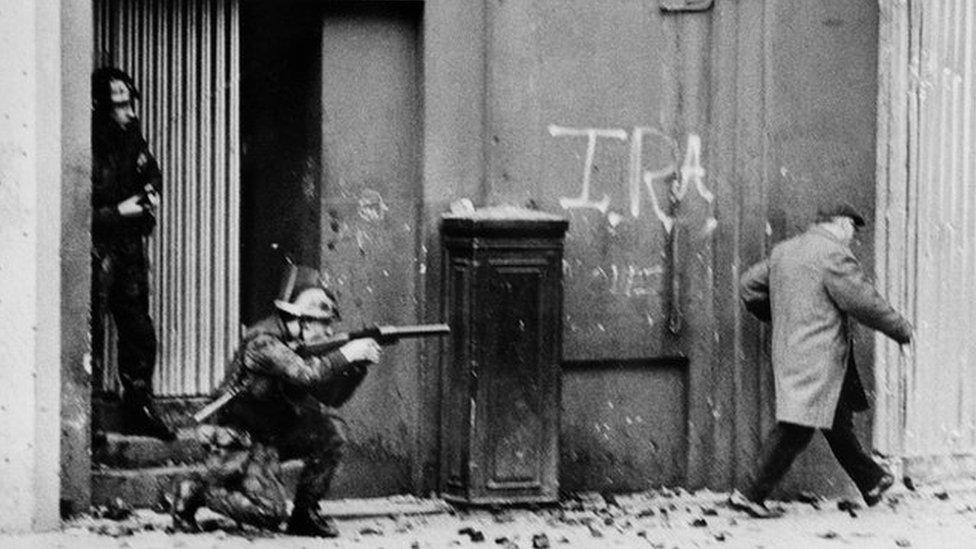Troubles pension costs 'were not fully understood' says civil servant
- Published
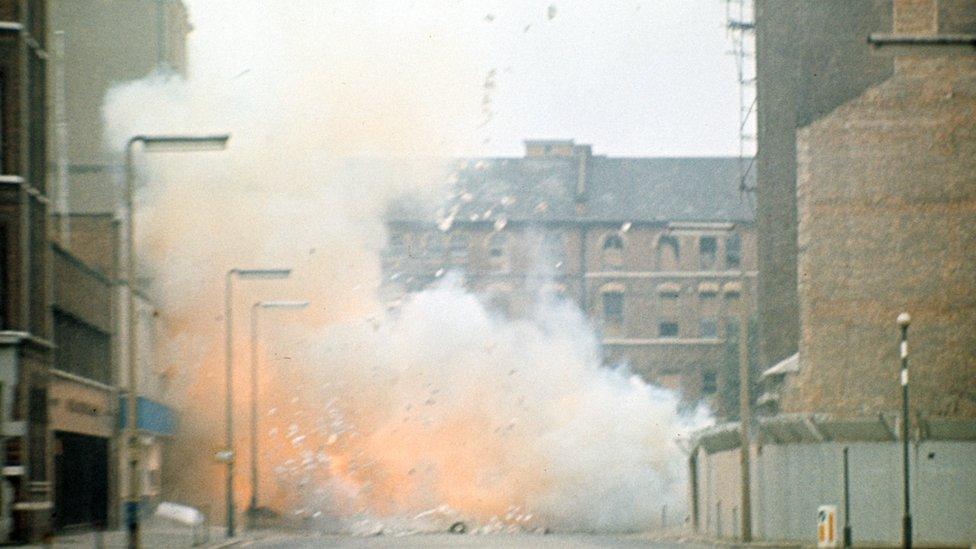
The legislation for Troubles pensions was made public without a full understanding of what the costs would be, a senior civil servant has said.
Mark Browne from Stormont's Executive Office made the remarks to assembly members (MLAs)
Mr Browne said the Northern Ireland Office (NIO) should have made a business case for the scheme.
There is currently a stand-off between London and Belfast on who should pick up the bill for Troubles pensions.
The UK government says the responsibility lies with the NI Executive , but executive ministers say they need more funding from London in order to finance the scheme.
Mr Browne told MLAs the administration costs for the first five years would be £40m.
He also said the cost of the scheme could be anything from £600m up to £1.2bn.
He said there were implications for the executive's budget if extra money was not forthcoming from the Westminster government.
He told members of Stormont's Executive Office committee there would be "implications if the block grant is not any larger".
He said his staff were trying to work out what the pension costs will be and confirmed that discussions with staff in London were continuing.
Mr Browne said the costs depended on a number of factors including how many people applied and also whether people took lump sum payments.
He said his staff had done "a significant amount of work on costs".
MLAs across a range of parties have all criticised London's position and called on the UK government to fund the scheme.
Meanwhile, a victims' group said people who are due payments under the Troubles pension scheme should not find themselves caught up in a financial dispute over who foots the bill.
Alan McBride of the Wave Trauma Centre said that was for politicians to sort.
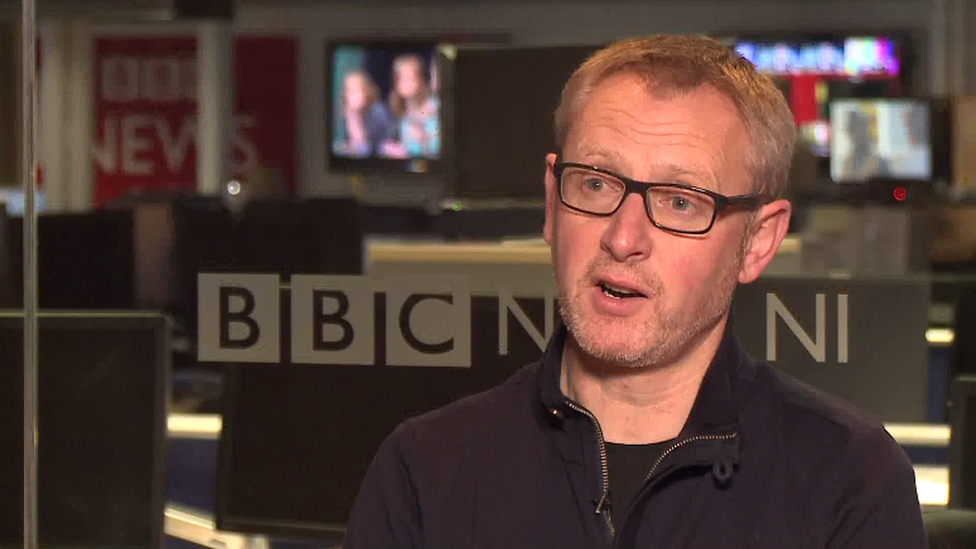
Alan McBride said it was up to politicians to decide on funding for the Troubles pension
"Do not under any circumstances point the finger at victims and survivors," he said.
"All they are doing is getting what they are morally and legally entitled to.
"It's for politicians to sort out the funding crisis and where the money comes from."
Mr McBride said survivors did not deserve to be played off against threats of a cut in public services in order to pay for the pension to which they are entitled.
"Not only have they received horrific injuries as a result of the Troubles which is why they are getting this pension in the first place," he said.
"But now they are going to have to cope with the guilt that is being heaped upon them because of potential threats to services."
Mr McBride's comments came as Northern Ireland Secretary Brandon Lewis dismissed as "untenable" claims from Stormont's finance minister that he does not have the money to fund the scheme.
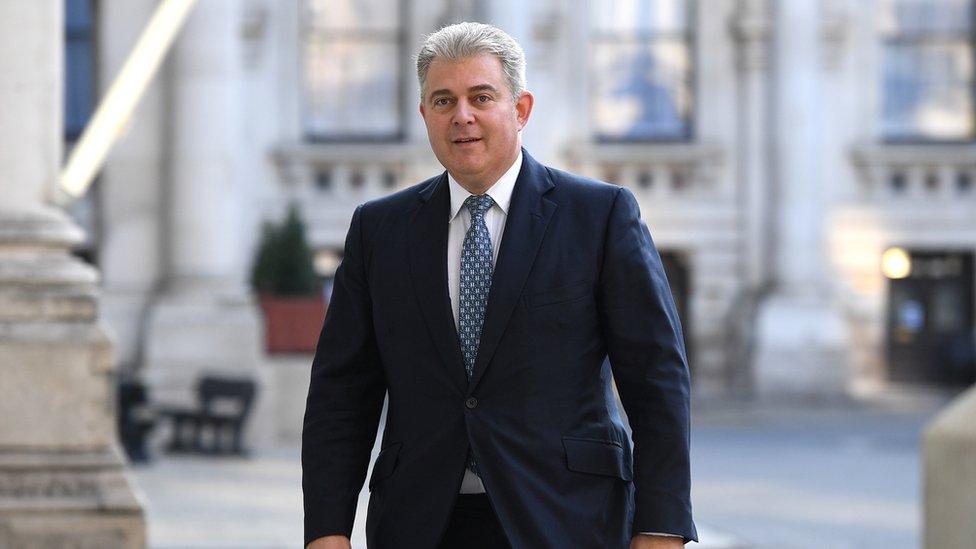
Brandon Lewis is adamant that the executive has the funds to pay for the pension scheme
Mr Lewis said Mr Murphy's assertion that executive coffers would not stretch to cover the costs of the scheme was not credible.
"With a £15bn block grant from the year where they've had an underspend, that they can't find the few million pound they need to find for what is a priority, what's been a legal commitment, what has been there since 2014, for the Sinn Féin Department of Finance minister to continue to delay this is untenable," he told BBC NI's Good Morning Ulster on Wednesday.
"How can he stand there and say with any kind of credibility that from a £15bn block grant approximately, that he is not prepared to make decisions to allocate a few million pounds to the victims' payment scheme that they are committed to since 2014?"
Mr Murphy has disputed Mr Lewis's position. He said the first year estimate for the scheme is as high as £145m.
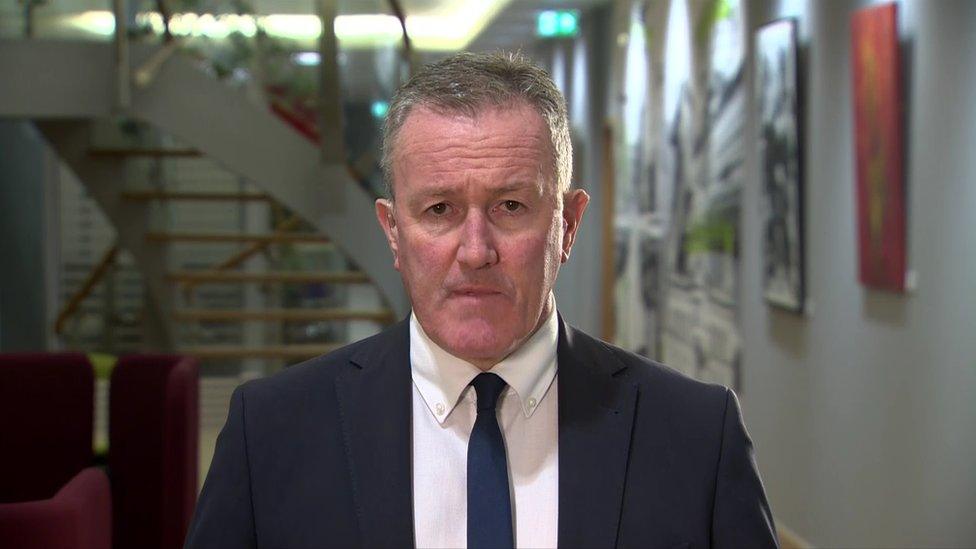
Conor Murphy said the UK Government should pay for the scheme
He also accused Mr Lewis of "dithering and delay" and said the UK Government should pay for the scheme because it legislated for it at Westminster
Earlier this month the Court of Appeal ruled the Executive Office was under a legal duty to make the payments.
It made no finding on the source of that funding and gave the Executive and Northern Ireland Office four weeks to find an agreed solution.
The Troubles Pension scheme is due to run for two or three decades and payments are to be backdated to 2014, the year in which it was first agreed.
What is the Victims' Payment Scheme?
The legislation came on to the statute book in January 2020. To qualify, you have to have an injury which is severe and permanent and caused by no fault of your own.
This can be physical injury, such as a loss of limbs, or psychological, caused by being present at a bombing, for example.
The scheme covers violence related to the Northern Ireland Troubles between 1966 and 2010, including incidents in Great Britain and Europe. Non-UK residents injured outside the UK cannot apply - such as victims of the Dublin and Monaghan bombings carried out by loyalists in 1974.
People will get between £2,000 and £10,000 a year for the rest of their lives. Upon their death, a spouse or carer, will get the payments for a further 10 years. The scheme is a recognition that criminal injuries awards from decades ago were largely inadequate.
Related topics
- Published22 February 2021
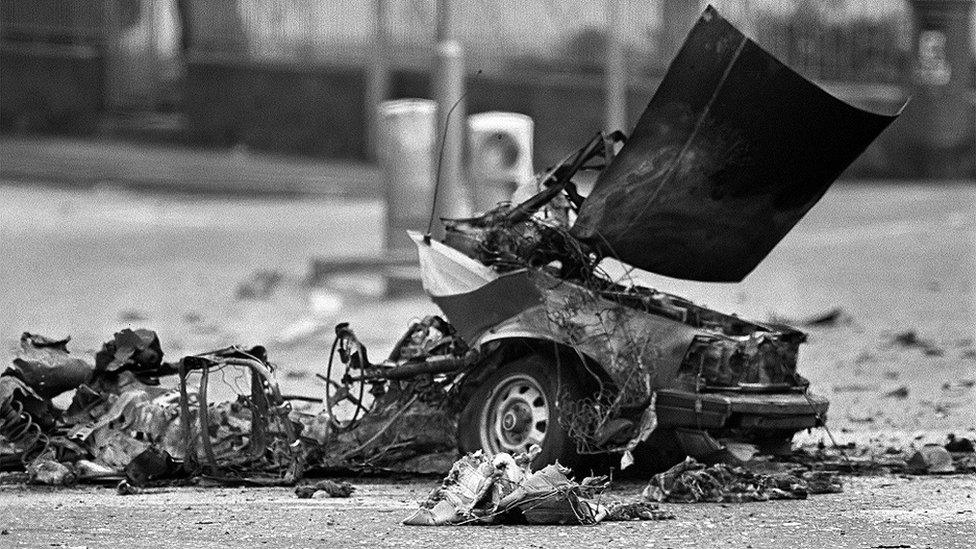
- Published9 February 2021

- Published19 January 2021
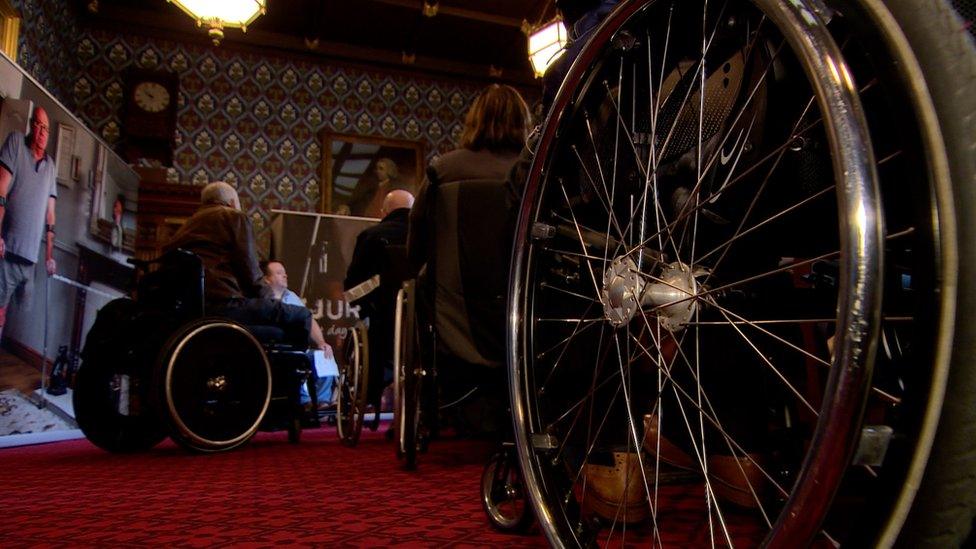
- Published20 January 2021
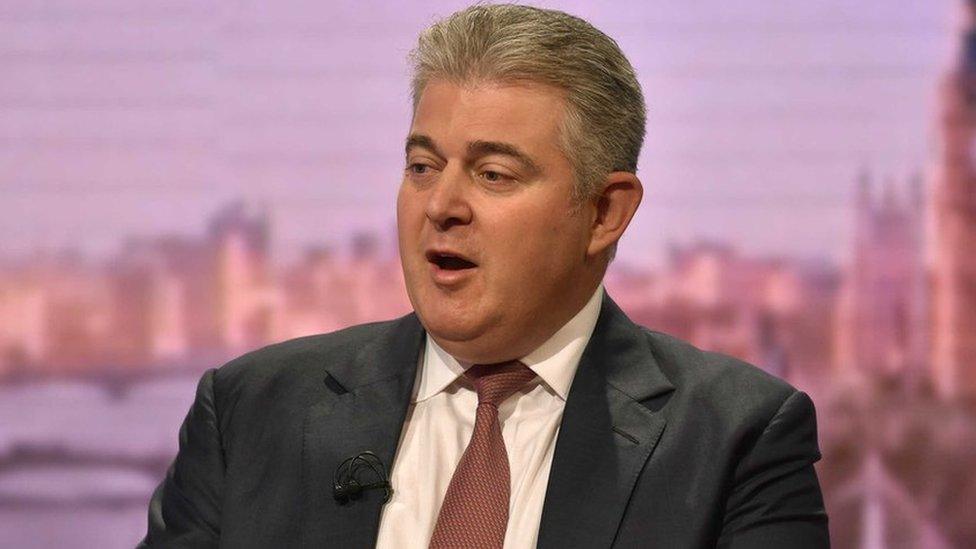
- Published29 August 2020
